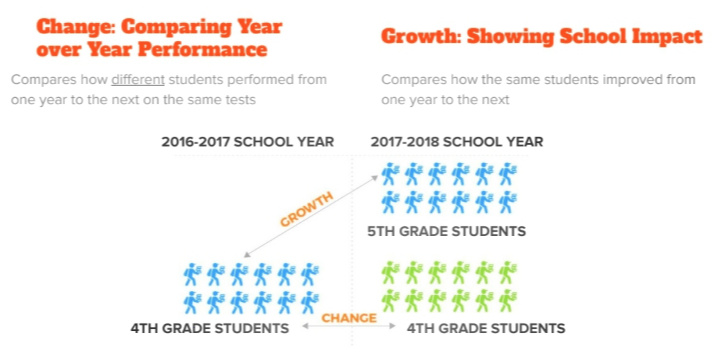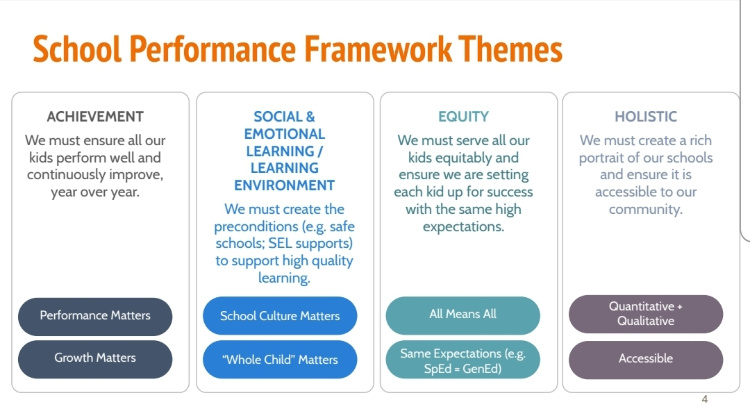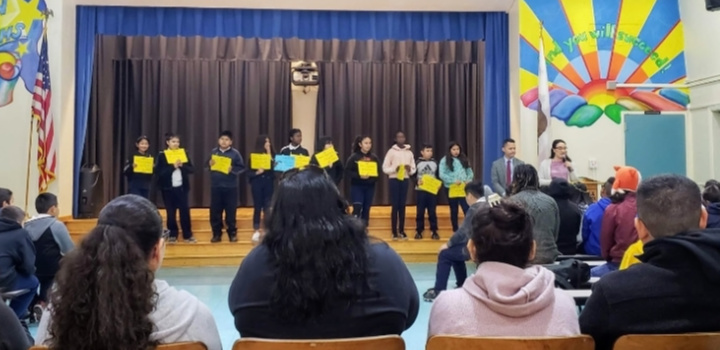This fall, L.A. Unified was planning to release a new tool that would explore achievement, social and emotional learning, school climate, equity, and the holistic portrait of each school within LAUSD. The School Performance Framework (SPF) was meant to be a tool that would help parents research schools in their community to help them find the best school based on their child’s needs. But now the SPF is in danger. Recently elected Board Member Jackie Goldberg is bringing a resolution to the board this Tuesday, November 5th, to sabotage the SPF.
Since the resolution passed last April with a vote from the board of 6-1, parents, teachers, and community members have been working hard to put this framework together. Last October, I joined the working group that provided input for this framework. During these working group meetings, we discussed what kind of indicators should be included, we discussed the importance of social emotional learning, and we reviewed different framework models currently used by Oakland, Denver, and New York City school districts. We also discussed the importance of student growth data and the difference between growth versus change. Student change data tracks different groups of students who enter a certain grade, and the change between that group and the next group that enter the same grade. Student growth data tracks the growth of a cohort of students from one grade to the next to clearly see their progress.

Growth data allows us to follow a group of students through their educational journey and gain a clearer picture of how a student has progressed through the years. For example, there might be a school that doesn’t necessarily have a high score but that doesn’t mean students aren’t learning. Board Member Kelly Gonez gave an example of this during a committee meeting a few weeks ago.
“I have examples of schools in my district, one where incoming 6th graders are coming in at an average 2nd grade reading level and then in math they are at an average 1st grade level. And based on the school’s dashboard, the school doesn’t look great,” Gonez said. “But if you looked at the growth, they were actually one of the schools who received a growth award from CORE because kids are growing a full reading level before the winter break even happens. And that’s tremendous progress that we should celebrate and that we should acknowledge, but there is no place in our system right now to do that.”
As I mentioned, one of the main issues we discussed during these working group meetings was parents being able to use this tool to help them find the right school for their child. Currently, the only tool available is the California State Dashboard, which is not user friendly for most, especially parents. And if you’re a parent whose first language is not English, it could be really difficult to navigate. At the same time, if you are the parent of an English Language Learner who is behind grade level, you may want to know which schools, like the one mentioned above, are doing the best job helping students catch up. Another problem with the California State Dashboard is that it does not include student growth data.
You might be wondering why is this useful tool now in jeopardy? Well, some board members think it might make students and staff feel bad about the school they attend if it has a low rating. The School Performance Framework would have categorized schools into five different categories including; Model, Sustain, Reinforce, Watch, and Intervene. There was also a star rating from 5 stars to 1 star, depending on which category the school was in. This might sound similar to Yelp, but instead of being based only on public opinions, this would have been based on collected data and test scores. Some critics of the framework have said things like, “We don’t need Yelp, we need help.” How can we help the neediest schools if we don’t know which ones they are?
Like I said in my public comment at the LAUSD committee meeting, “It’s unfortunate that we have to ask and almost beg for the student growth data to be released. When every single state in the country, except for California and Kansas, makes this data accessible. This is not Kansas. This is
I personally want the original framework in its entirety to be available to parents. The time and money
As far as making someone feel bad because their school is not doing well, I think a student is going to feel a lot worse when they get to college, if they get to college, and they find they are not prepared because they did not get the education they deserved and they were unaware of it.

Roxann Nazario
Latest posts by Roxann Nazario (see all)
- La inscripción Escolar en California Cae por Debajo de los 6 Millones - May 30, 2022
- Cómo las Pruebas Estandarizadas afectan a los Niños y por qué es Importante saber que puede optar a no Participar - May 5, 2022
- California School Enrollment Drops Below 6 Million - April 27, 2022
- How Standardized Tests Affect Children and Why it’s Important to Know You Can Opt Out - April 19, 2022
- Hablemos de Oportunidades Económicas este Mes de la Historia de la Mujer - March 23, 2022

